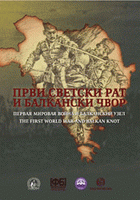Рад слободних зидара на српско-хрватској сарадњи од краја XIX века до почетка Првог светског рата
Masonry Work On Serbo-Croatian Cooperation From The End Of 19th Century To Beginning Of The First World War
Author(s): Darko GavrilovićSubject(s): History
Published by: Institut za savremenu istoriju, Beograd
Keywords: Masons; Serbs; Croats; Serbian - Croatian political relations and First World War
Summary/Abstract: From late 19th century to the beginning of World War I Masonry won the South Slav feature among the Serbs and Croats, which marked the good political relations between these two nations. Their political representatives are increasingly entering the ranks of Freemasonry, and there they worked on deepening the Serb-Croat unity. This has not been without obstacles. Such actions were against the interest of the ruling circles of Vienna and Budapest, which is supported by the Roman Catholic Church. On several occasions, including allegations that Masonry is organized assassination, which led to the outbreak of World War I, the Freemasons of South Slavic countries were attacked because of their political work on Serbo-Croat cooperation. These charges were dropped after World War I, when the Kingdom of Serbs, Croats and Slovenes was established, thanks to the work of Serbian and Croatian Freemasons – the state in which the South Slav politicians and Masons tried to find common interest in further development and cooperation.
Journal: Zbornik radova Instituta za savremenu istoriju
- Issue Year: 2014
- Issue No: 12
- Page Range: 277-288
- Page Count: 12
- Language: Serbian
- Content File-PDF

